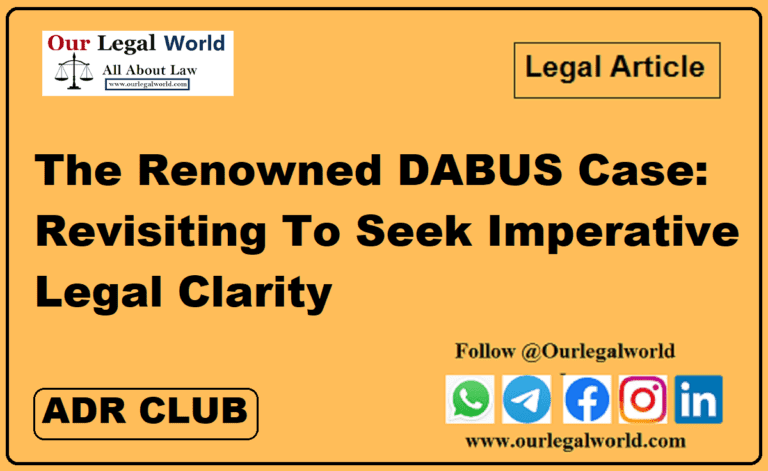A.D.M. Jabalpur v. Shiv Kant Shukla 1976 2 SCC 521
Fact in Brief :
On June 25th 1975, the President proclaim National Emergency under Article 352 of the Constitution and declared that a grave emergency existed whereby the security of India was threatened by internal disturbances.
On June 27th 1975 in the exercise of powers conferred by clause (1) of Article 359 the President declared that the right of any person including a foreigner to move any court for the enforcement of the rights conferred by Article 14, Article 21 and 22 of the Constitution and all proceeding pending in any court for the enforcement of the above-mentioned rights shall remain suspended for the period during which the proclamations of emergency made under clause (1) of Article 352 of the Constitution on December 3rd 1971 and 25th 1975 were in force.
The Presidential Order of June 27, 1975 further stated that the same shall be in addition to and not in derogation of any order made before the date of the aforesaid order under clause (1) of Article 359 of the Constitution.
On January 8th, 1976 there was a notification passed in the exercise of powers conferred by clause (1) of the Article 359 of the Constitution whereby the President declared that the right of any person to move any to court for the enforcement of the rights conferred by Article 19 of the constitution and all proceeding pending in any court for the enforcement of the above mentioned rights would remain suspended for the period during which the proclamation of emergency made under clause (1) of Article 352 of the Constitution on December 3rd, 1971 and on June 25th 1975 were in force.
Several illegal detentions were thereupon made across the country, pursuant to made across the nation, pursuant to which various writ petitions were filed throughout the country. Nine High Court decision in favour of detunes, holding that though Article 21 can’t be enforced, yet the order of detention was open to challenge on the other grounds such as that the order passed was not in compliance of the act or was mala filed. Against these orders, many appeals were filed before the Supreme Court.
Disposing of all the appeals together, the Supreme Court set aside that the decisions of the High Courts which had held the declaration and the subsequent detentions as illegal and upheld the declaration and suspension of the said rights.
Arguments
Before the Supreme Court, Attorney General pleaded that Article 21 of the Constitution. Fundamental rights which provided for security of life and liberty of any person, has been suspended and therefore, the suspension of that Article meant that the detenu had no remedy even against an illegal detention i.e. all the remedy to secure like and the personal freedom ended with the suspension of Article 21.
The detunes agued that they had a right to seek remedy under Article 226 and therefore a remedy against illegal detention was available to them despite the suspension of Article as the remedy under Article 226 which provided for enforcing any other legal right, was not suspended by the Presidential Order.
Judgments
Marking the black day of Indian legal history, the Supreme Court rejected the arguments of the Respondents and held that Article 21 of the Constitution was the sole repository of right to life and liberty and therefore, the suspension of it implied that all the remedies protecting this right under any other law shall also be suspended.
The Court while construing Article 21 as the sole repository of life and personal liberty denied all available remedies to the detenus on any ground that any challenge to the detention order for the enforcement order suspending it being in force. The majority further held that even the order of detention order for the enforcement of the right to personal liberty under Article 21 could not be so done on account of the presidential order suspending it being in force.
The majority further held that even the order of detention could not be challenged even on any other ground, even if the detention order was passed male fide, rendering the detenu without any remedy even against illegal detention.
Therefore, the Court declared, “in view of the Presidential Order dated June 25th before a High Court for habeas corpus or any other writ or order or direction to challenge the legality of an order of detention on the ground that the order is not under or in compliance with the Act or is illegal or it vitiated by male fides factual or legal or is based on extraneous consideration,” closing its doors to any sort of relief whatsoever to any person suffering from illegal detent.







